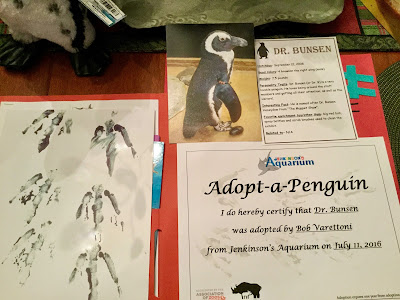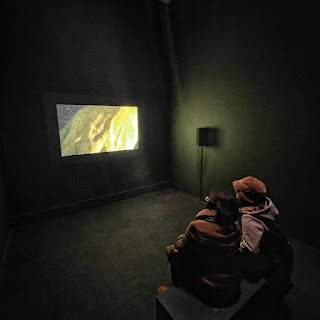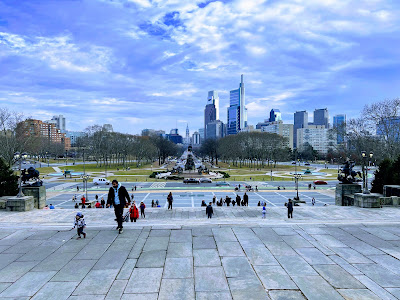 |
| Images generated by DALL-E 2 |
I’m writing poems based on prompts every Sunday from New Jersey poet Dimitri Reyes. Although I’ve taken some liberties with the prompts, I hope to continue this throughout 2023 and post these poems monthly. I’ve already posted my first and second poems here. Following are the other poems during this five-Sunday month.
—————————
The prompt: Write about something you’ve been devastated about.
POEM 3: Diary of a Sociopath
I’m a boy playing minigolf
in rural New Jersey along Route 46.
It’s the site of a strip mall now.
My playmates, young Sheryl and Eddie,
were neighbors then.
Their house, a used car lot now.
It was Mother’s Day then.
Tires screech.
A car horn blares.
A sudden, sickening thud of metal on metal.
A woman screams.
I miss my short putt.
Minutes pass,
and we witness her death.
The children in her car are silent.
Her dog wails.
Sheryl and Eddie are speechless.
I grow restless.
I rearrange my stance over a bright yellow, dimpled ball
and aim for the mouth of a clown.
Can I have a do-over, I ask?
—————————
The prompt: Write a poem using these words: mule; monsoon; traveled.
POEM 4: Ode to Gorilla Monsoon
We traveled through seven man-made holes
in the mountains of Pennsylvania.
Heading west, Dad squinted behind Saratoga Ray Bans:
The last cold warrior, the Republican JFK.
Dad was behind the wheel of our black Chevy Impala,
his hands recklessly at 12 and 6.
He said it gave him more control,
as Hank Williams crackled “I Saw the Light” across WINB AM.
Beads of sweat formed on Dad’s clean-shaven cheek,
releasing the incense of Old Spice.
Our car leaked smoke from his Micronite-filtered Kents
rising from a half-inch crack in the driver’s side window.
Arriving from New Jersey at dusk,
we parked in front of a modest house atop Mount Pleasant,
and my uncle rushed to place cinder blocks
behind our low-slung wheels.
The next morning, amid cornstalks on a hillside,
my cousin and I wrestled, diurnal primates at play.
His hero was Bruno Sammartino,
and I was a poor substitute for Gorilla Monsoon.
I am not a fighter.
I ate a mule kick on my cousin’s follow-through,
as Dad watched in the distance.
He flicked his cigarette to his feet and turned his back on me.
I was always a sucker for a sucker punch.
I woke this morning
threescore years and precisely 338 miles away,
with a phantom pain in my side.
I am the Survivor Series antihero.
And I remember everything.
—————————
The prompt: With Groundhog Day upon us, read this poem by Len Lawson and write your own poem where the speaker repeats the same day over and over again.
POEM 5: Groundhog Day in Ramsdale
In the month of January,
I wrote a poem every week.
Prompted by a poet,
each day I wrote more words for you,
but I have not gotten anywhere yet.
In the month of February,
I will wait for your return:
I’m still in love with you.
I’m still in love with you.
I’m still in love with you.
I’m still in love with you.
I’m still in love with you.
I’m still in love with you.
I’m still in love with you.
I’m still in love with you.
I’m still in love with you.
Repeat, editor, till the month is full.
—————————
PS: Here's a visual poem — "Groundhog Day 2023" — with images of the NYC skyline from the Lincoln Tunnel helix on my morning commute via bus during January:

























